Professor Sanjib Bhakta from the Department of Biological Sciences discusses the various forms of PPE (Personal Protective Equipment) available and how effective they may be in shielding us from catching COVID-19.
Although PPE should be used as a last resort to reduce health risks at work, it is often essential for the health workers and laboratory researchers to use PPE. Now, practicing this has become more crucial than ever as we must consider; lab coats, gloves, safety glasses and face-masks more widely and wisely in our microbiology research laboratories with the ongoing global challenges with the COVID-19 pandemic!
It is our (both employer and employee) primary responsibility in making the workplace safe and includes providing/following instructions, procedures, training, and supervision to encourage people to work safely and responsibly. If PPE is ultimately needed after implementing other controls of substances hazardous to health (COSHH), we must provide this for our employees free of charge. We must choose the equipment carefully (see selection details below) and ensure employees are trained to use it properly and know how to detect and report any faults.
The right mask for the right task: There are several different types of face-masks on the market with a complicated grading system. It can be difficult to distinguish the type of mask you may need or if you need it at all, so here is a useful breakdown.
The right mask for the right task: There are several different types of face-masks on the market with a complicated grading system. It can be difficult to distinguish the type of mask you may need or if you need it at all, so here is a useful breakdown.
Surgical masks: These are the most commonly encountered masks, frequently worn in a clinical setting. These masks contain a 3-ply barrier and do not provide a high level of protection for the wearer. Studies that compare different surgical masks by manufacturers find significant variability in their filtration potential. Depending on the manufacturer, a surgical mask can filter particles at a varied level.
Cloth masks: Cloth masks have become a popular alternative globally for social distancing. While they may create a more practical solution than surgical masks as can be worn for a longer period, they still do not block specific particles from passing through. There is little data on their efficacy.
These types of masks can be attributed to a lack of regulation over manufacturing, as 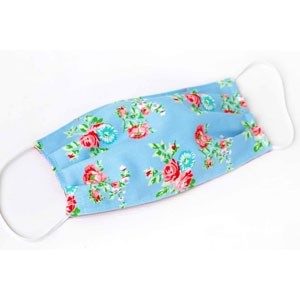 well as the poor peripheral seal around the face. The porous design and gaps forming on the cheek and neck area allow airborne particles to leak through the mask. They are most effective in potentially protecting others from bodily fluids expelled by the wearer. For example, a sick (with or without clinical symptoms) person can wear this to protect others from droplets (of varied size) produced while coughing or sneezing.
well as the poor peripheral seal around the face. The porous design and gaps forming on the cheek and neck area allow airborne particles to leak through the mask. They are most effective in potentially protecting others from bodily fluids expelled by the wearer. For example, a sick (with or without clinical symptoms) person can wear this to protect others from droplets (of varied size) produced while coughing or sneezing.
Respirator: A “respirator”, that is validated by a regulatory body, typically have an adequate seal and an air filter that regulates what particles can pass through, making them effective against airborne contaminants and aerosolized droplets. Amongst the respirators, there are disposable and reusable versions of the mask. The disposable respirators (left) are not meant to be used for more than a few hours. The reusable masks, also known as “half-face masks” (right) have cartridges to replace the air filter after several hours of consecutive use. Amongst the reusable masks, one should look for filters that block particulate matter not just gas/vapor only, to protect against pathogens. Also, users should always carry out a pre-use seal check or fit 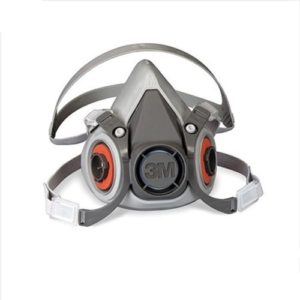 check.
check.
Face shields: Face shields may be advantageous because they provide a single barrier against mucous membranes on the face (portals of microbial entry i.e. eyes, ears, nose, mouth). They have been shown to reduce a person’s exposure to acutely expelled large droplets. However, smaller particles can stay in the air longer and make 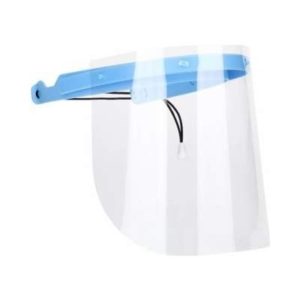 their way around the face shield. That’s why face shields should be worn in combination with another PPE, such as a mask. Another major advantage of the face shield is that they substantially reduce surface contamination of respirators, prolonging their use.
their way around the face shield. That’s why face shields should be worn in combination with another PPE, such as a mask. Another major advantage of the face shield is that they substantially reduce surface contamination of respirators, prolonging their use.
Consider while purchasing: a combination of letters and numbers that specifies what particles the mask allows to pass through the filter. Note, respiratory pathogens are found in water-based aerosol droplets (e.g. sneezing, coughing etc).
| Country | Respirator Classification | ||
|
United States (NIOSH) |
N95 (95% non-oily particles) | N99 (99% non-oily particles) | N100 (99.97% non-oily particles) |
| European Norm (EN)
|
FFP1 (80% particles) | FFP2 (94% particles) | FFP3 (99.95% particles) |
The letters ‘N’ and ‘FFP’ stand for ‘not oil resistant’ and ‘filtering face piece’. Next is the numbering system, which are as follows: 95 = effectively blocks out 95% of airborne particles, 99 = effectively blocks out 99% of airborne particles, 100 = effectively blocks out 99.97% of airborne particles. Once you understand that breakdown, it is easy to understand the masks that other countries manufacture.
Further information:

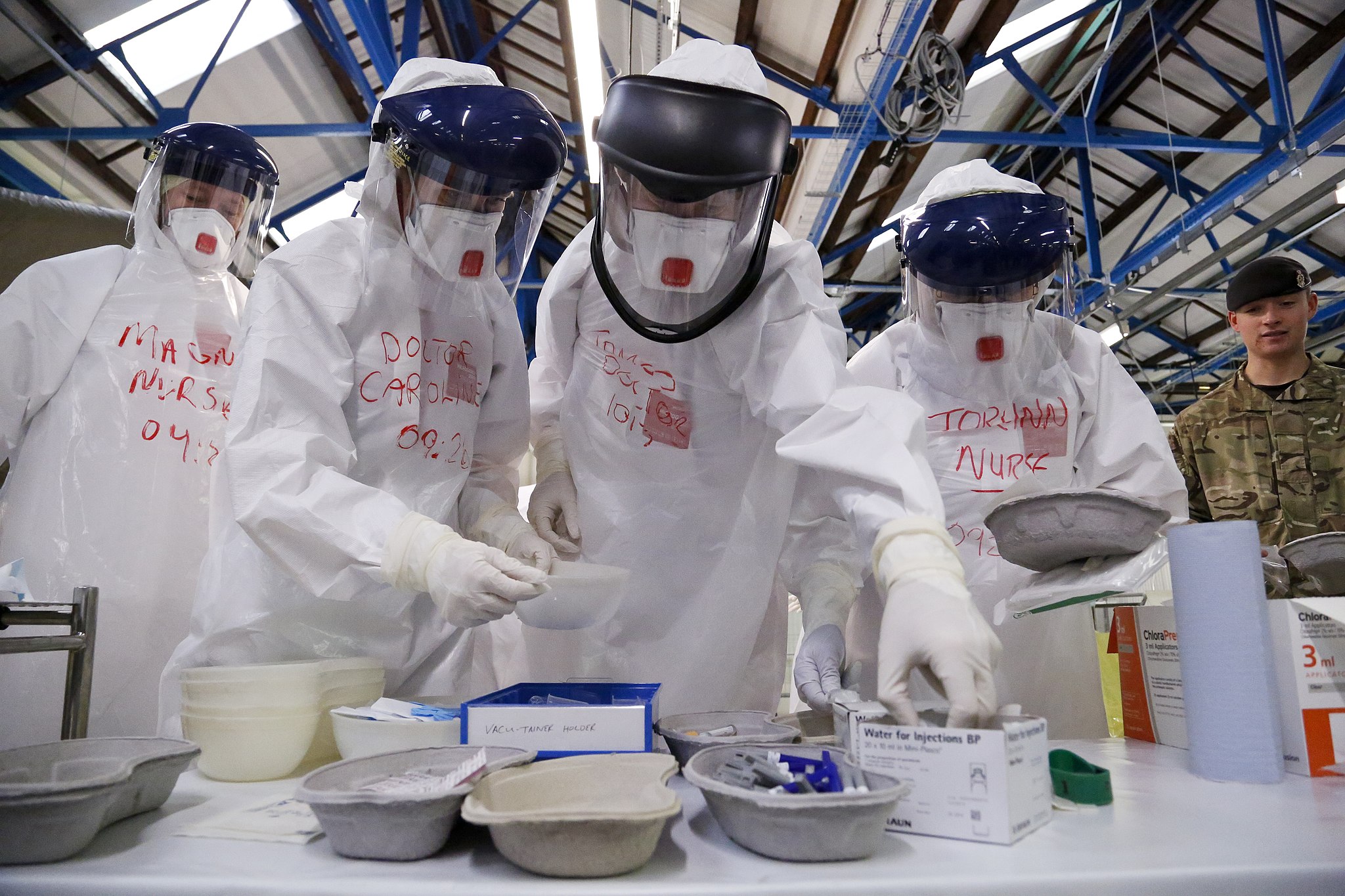
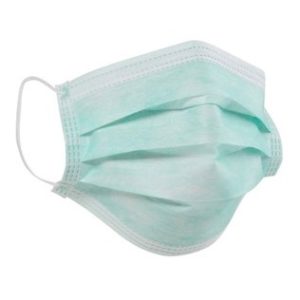
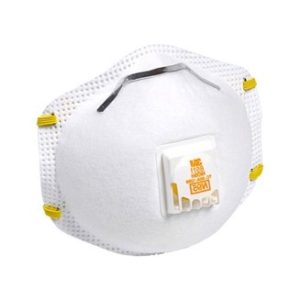
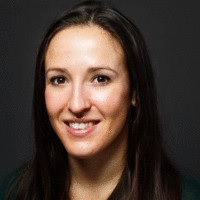 Sophie DeFries, Bio-business alumna: I obtained my BSc from St Andrews in Cell/Molecular Biology then went on to receive an MSc from London School of Hygiene and Tropical Medicine in Medical Microbiology. My post-university work experience has been in market research and consulting in the healthcare industry. I began at a market research agency in the oncology business unit solving pharmaceutical client brand strategy needs. Currently, I work for a marketing and sales management consultancy where client projects have a wide scope of therapy areas, drugs, and business objectives.
Sophie DeFries, Bio-business alumna: I obtained my BSc from St Andrews in Cell/Molecular Biology then went on to receive an MSc from London School of Hygiene and Tropical Medicine in Medical Microbiology. My post-university work experience has been in market research and consulting in the healthcare industry. I began at a market research agency in the oncology business unit solving pharmaceutical client brand strategy needs. Currently, I work for a marketing and sales management consultancy where client projects have a wide scope of therapy areas, drugs, and business objectives. Alba Ruzafa Martín, Bio-business student: I studied Biology back home in Madrid and after working in a lab for one year I decided that “lab-life” wasn’t for me. Then I decided that industry would be an interesting path to follow, so I started to look for a master’s and I found Bio-business at Birkbeck. For me, it was the perfect option. Not only because of the modules on offer but also because I needed (and still do need) to work full time.
Alba Ruzafa Martín, Bio-business student: I studied Biology back home in Madrid and after working in a lab for one year I decided that “lab-life” wasn’t for me. Then I decided that industry would be an interesting path to follow, so I started to look for a master’s and I found Bio-business at Birkbeck. For me, it was the perfect option. Not only because of the modules on offer but also because I needed (and still do need) to work full time. Igor Smyriov, Bio-business alumnus: I had been looking for a master’s degree in business with a focus on biotech and life science for more than two years before I found the MSc Bio-business at Birkbeck. It had everything I was looking for: the option to study part-time in the evening, the central London location, and a huge variety of modules to study.
Igor Smyriov, Bio-business alumnus: I had been looking for a master’s degree in business with a focus on biotech and life science for more than two years before I found the MSc Bio-business at Birkbeck. It had everything I was looking for: the option to study part-time in the evening, the central London location, and a huge variety of modules to study.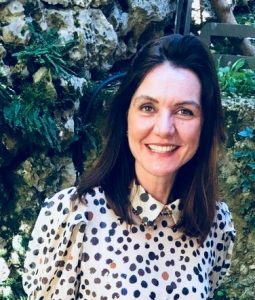 Romina Durigon, Bio-business student: I was drawn to Bio-business by the desire to gain a deeper knowledge of the biotech and pharma sectors while networking and connecting with some of the most important companies and not-for-profit organisations in the UK.
Romina Durigon, Bio-business student: I was drawn to Bio-business by the desire to gain a deeper knowledge of the biotech and pharma sectors while networking and connecting with some of the most important companies and not-for-profit organisations in the UK.